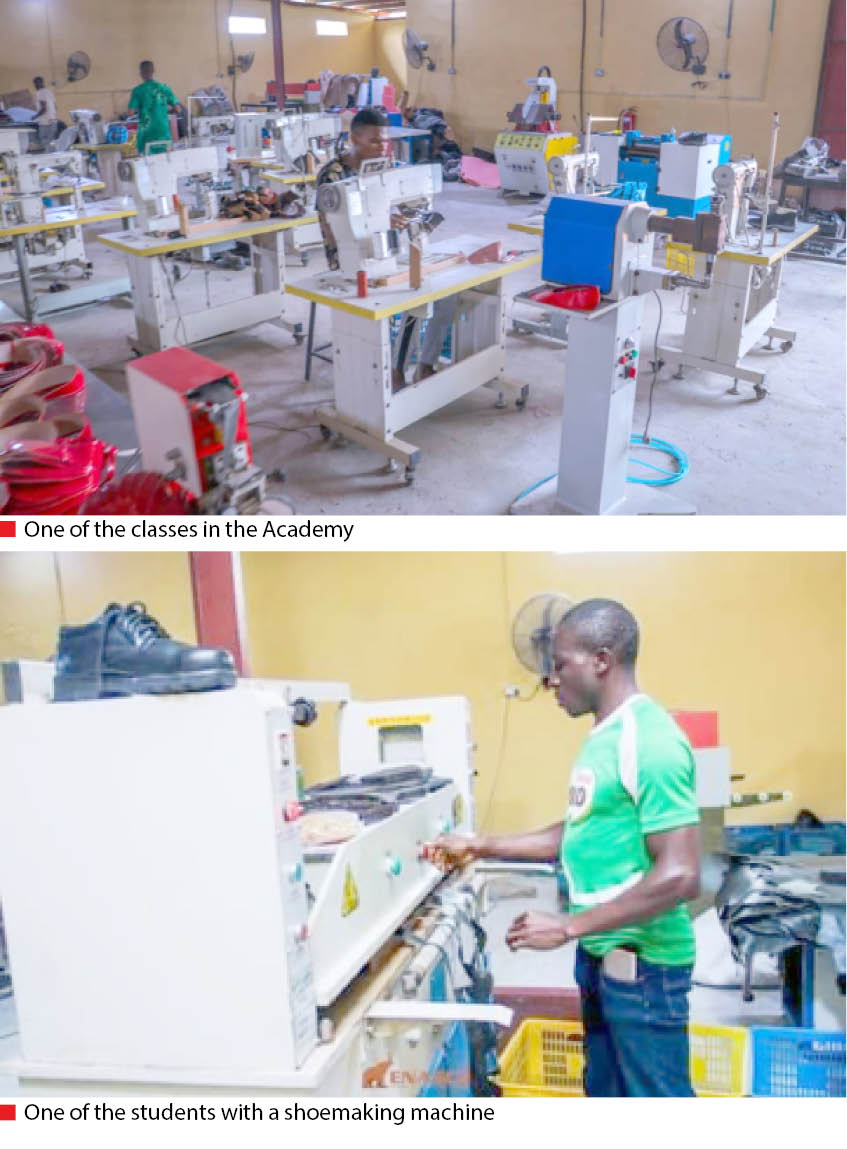The shoemaking business is no longer for illiterates and school dropouts as graduates have joined the trade and making more money than what they would have earned in white-collar jobs. Daily Trust visited Aba, the commercial nerve centre in Abia State and now reports.
Despite the hike in the prices of raw materials, shoemakers in Aba are making huge profits. Many people who spoke with our correspondent disclosed that they decided to shift the high cost of raw materials to customers by increasing their prices. For instance, if the cost of producing a pair of female shoes is N700, they would sell at N1,500 or more, depending on the quantity and bargaining power of the customer.
“Sometimes we make up to N600 profit on every pair of shoes produced, so multiply it by the total number of shoes ordered by a customer,” one of the shoemakers said.
It was also learned that they make more money because the influx of Chinese shoes (which used to be of less quality and cheap) into the country has dropped drastically; hence Nigerians have no other option but to patronize local manufacturers.
At the Ariaria International Market, Aba, Abia State, shoemaking is a lucrative business. According to Austin Agbara, a graduate of Business Management from Ebonyi State, “If you are dedicated to this trade you will go places.”
Deacon Obioma Daniel, the chairman of Aba North Shoe Plaza, informed our correspondent that despite the challenges of COVID-19, shoe production in Ariaria Market had continued to thrive. Although he admitted that there was a lull in business activities because of the effects of the pandemic, he said, “We have gone beyond petty shoemaking. But for us to do so successfully, we need modern machines. That’s where the government should come in. Government should assist us through the banks to get soft loans, ranging from N500,000 to N100 million. This will boost the shoe and leather subsector and earn foreign exchange.”

Daniel regretted that despite the strategic nature of the market and the shoe industry, the COVID-19 loan palliatives didn’t get to them.
The challenges of the traders, according to him, are lack of automated machines to produce better and more shoes, steady power supply, continued increase in the exchange rate, lack access roads into the market, etc. In terms of quality, he said, “If we are provided with automated machines and loans we will produce better shoes than Italy and Brazil,” he boasted.
It was gathered that the Ariaria market has over 150,000 shoemakers and artisans, all clustered in different locations like Aba North Shoe Plaza, Bakassi Shoe Zone, Main Ariaria, etc.
According to Chris Iwu, a 42-year-old shoemaker at the Aba North Plaza, although he has stamping, belt-cutting and sole processing machines, he still needs more to fine-tune his works and make them more durable.
Read More: https://dailytrust.com/how-ban-on-import-makes-aba-shoe-makers-richer

